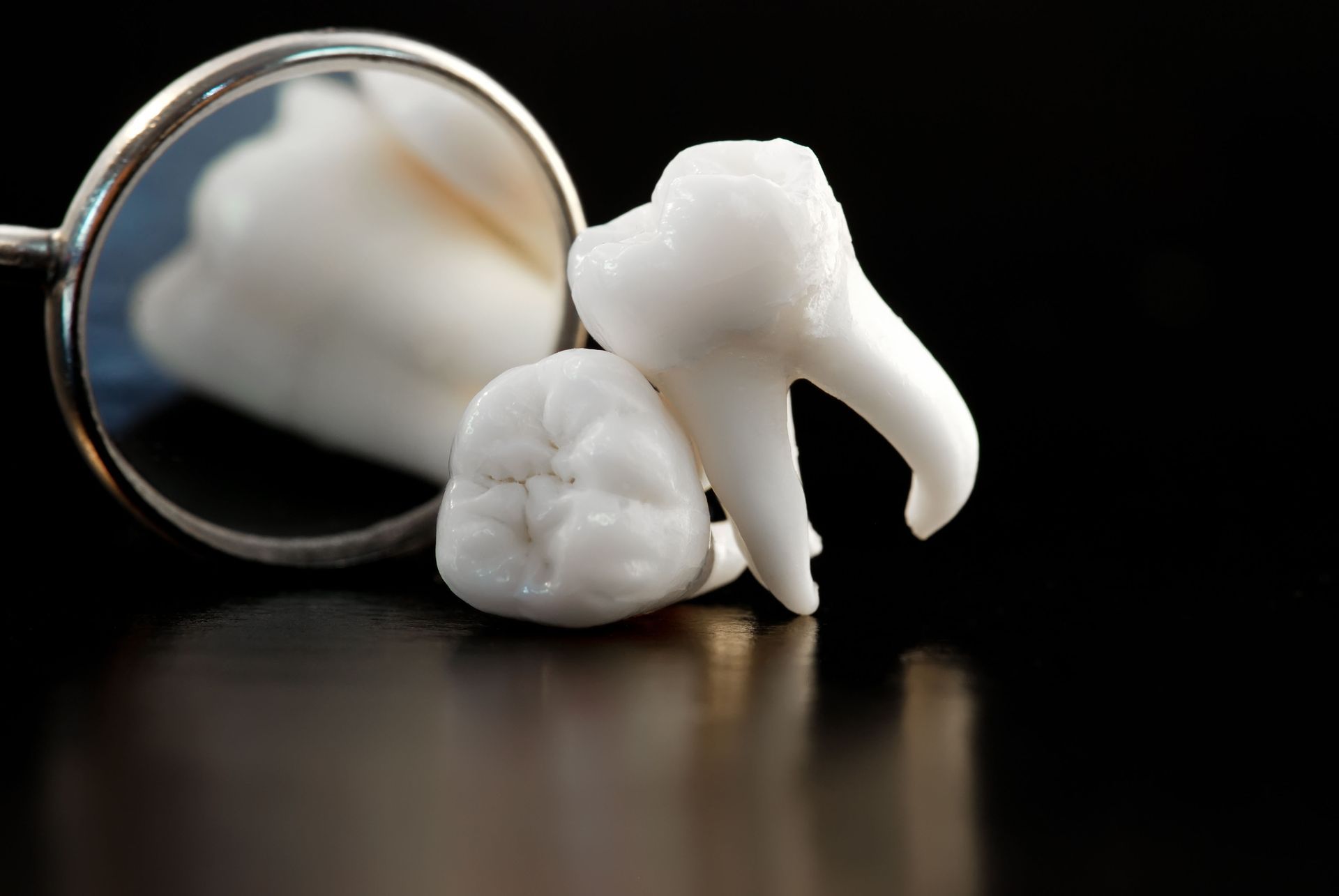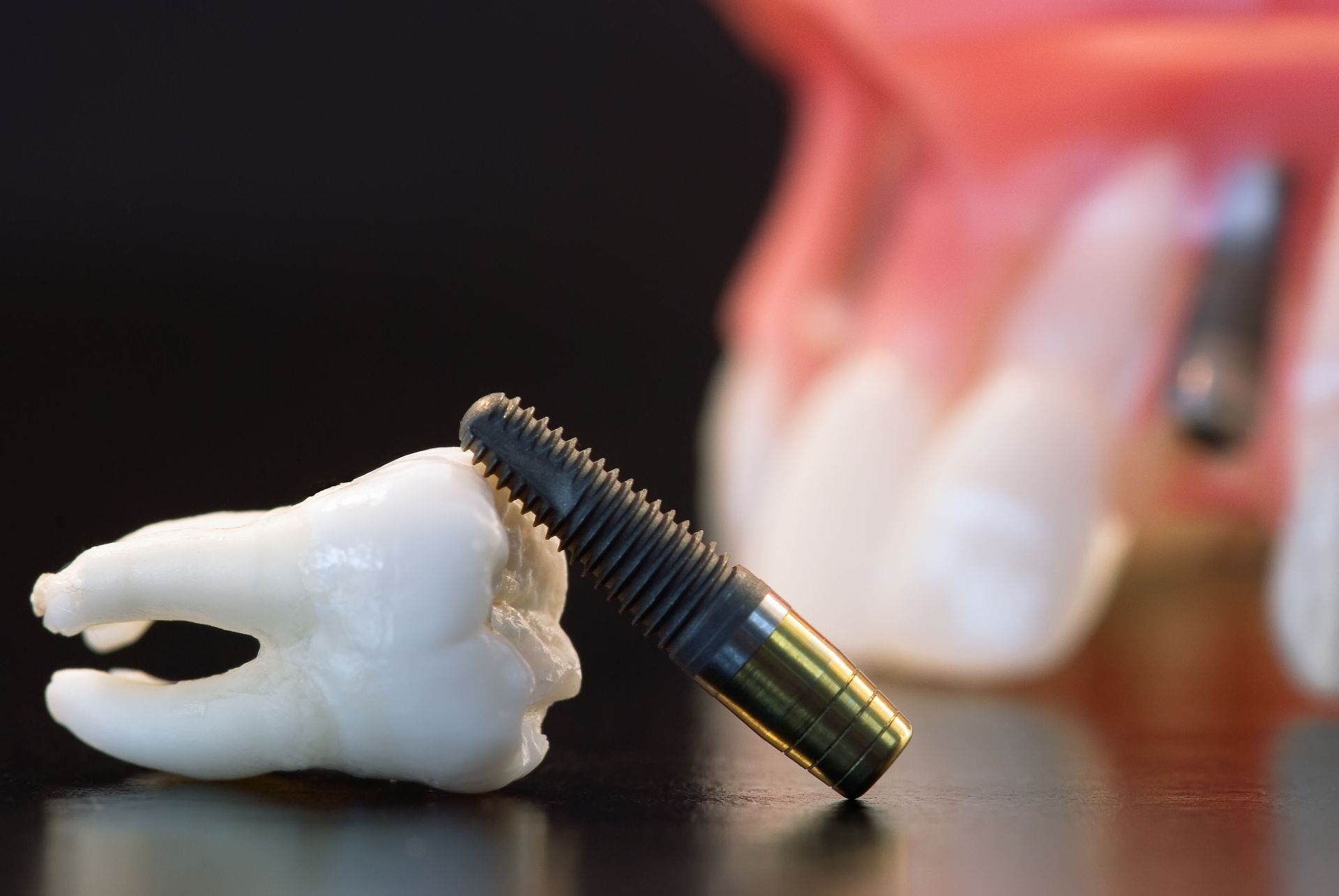Everything You Need to Know About Dental Implants: A Complete Guide
The world of dental implants can be daunting for those unfamiliar with the process. This guide aims to demystify dental implants, offering a comprehensive look into what they are, how they function, and what you can expect from the procedure. Whether you're considering this treatment for yourself or just curious about advancements in dental technology, this article covers everything you need to know.
1. Understanding the Basics of Dental Implants
1.1 What Are Dental Implants?
Dental implants are artificial tooth roots that provide a permanent base for fixed or removable replacement teeth. They are designed to blend in with your other teeth and offer a strong foundation through a biocompatible titanium post that integrates with the jawbone. The purpose of dental implants extends beyond aesthetics—they restore the ability to chew, improve speech, and enhance facial symmetry. One of the key components is the implant body, abutment, and restoration or crown. With dental implants, individuals can experience improved oral health and long-term benefits.
1.2 Exploring the Types of Dental Implants
Dental implants come in various forms, with endosteal and subperiosteal implants being the most common. Endosteal implants are the most frequently used and involve surgically drilling them into the jawbone, followed by osseointegration. Subperiosteal implants, on the other hand, rest on top of the jawbone and are ideal for patients who cannot wear conventional dentures.
1.3 Tracing the History of Dental Implants
Dental implant technology has evolved significantly, driven by advancements in materials, surgical techniques, and implant design. These innovations have greatly improved success rates and patient satisfaction, making dental implants a trusted and widely used solution in modern restorative dentistry.
2. Identifying the Right Candidates for Dental Implants
2.1 Defining Ideal Candidates for Dental Implants
Not everyone is a candidate for dental implants, but ideal candidates typically have good oral and general health. Those with sufficient jawbone density and healthy gums are excellent prospects for implant surgery. Non-smokers often fare better and experience fewer complications compared to smokers.
2.2 Understanding Contraindications and Risks
Although dental implants boast a high success rate, they are not suitable for everyone, and there are risks involved. Patients with chronic health conditions, such as uncontrolled diabetes or heart disease, may face complications.
2.3 Considering Special Factors for Seniors
Seniors considering dental implants should assess several factors before proceeding with treatment. Age in itself is not a limiting factor; rather, the individual's health status and bone density are more critical. Seniors need to discuss their unique needs and concerns with their dentist, as well as consider the potential benefits of improved quality of life. For many seniors, dental implants lead to enhanced nutrition and self-confidence, combating issues like tooth loss and ill-fitting dentures. With advances in technology, dental implants offer an excellent restorative solution for aging populations.
3. Navigating the Dental Implant Procedure
3.1 Preparing for Dental Implant Surgery
The preparation phase is critical for a successful dental implant procedure. It begins with a comprehensive dental examination, including X-rays or 3D imaging to assess bone health. Patients should discuss their complete medical history and any medications with their dentist to ensure safe care. Adjustments to existing oral hygiene practices are necessary, sometimes involving a professional cleaning before surgery.
3.2 Undergoing the Dental Implant Surgery
The dental implant procedure is typically performed in several stages, starting with the placement of the implant post. Under local anesthesia, the dentist makes a small incision in the gum to access the jawbone and drills an opening for the implant. Once the post is securely placed, a temporary crown may be added as osseointegration begins. This healing period allows the implant to fuse with the bone, taking several weeks to months. Once healed, the permanent abutment and crown are affixed, completing the restoration process.
3.3 Recovering After Dental Implant Surgery
Recovery after dental implant surgery is a gradual process that requires patience and adherence to care instructions. Patients can expect some swelling, discomfort, and minor bleeding, which typically subside within a few days. Adhering to a soft food diet and avoiding rigorous activities aid in recovery. Regular follow-ups with the dentist are crucial for monitoring healing and ensuring optimal outcomes. According to Delta Dental guidelines, visiting the dentist at least once or twice a year plays an essential role in maintaining oral health post-surgery and beyond.
4. Exploring the Financial Aspects of Dental Implants
4.1 Breaking Down the Costs
The cost of dental implants can be significant, encompassing several components such as the surgery, prosthetic crown, and additional procedures if needed. Initial consultations and diagnostic imaging also contribute to the overall expense. While more expensive than alternatives like dentures, implants are valued for their durability and functionality. Cost variations can occur depending on the complexity of the case and geographic location.
4.2 Reviewing Insurance Coverage
Insurance coverage for dental implants varies widely across plans and providers. Some insurance plans may cover part of the procedure, especially if implants serve a reconstructive purpose post-injury. It's essential for patients to carefully review their policy terms and discuss coverage options with their insurance provider. In some cases, alternative financing or payment options can be arranged through the dental office.
4.3 Considering Payment Plans and Financing
Financial constraints can deter patients from pursuing dental implants, but various financing options are available to ease the burden. Many dental practices offer payment plans that allow patients to spread costs over time. Third-party financing companies often provide loans with affordable monthly payments and interest rates. Additionally, some employers may offer Health Savings Accounts (HSAs) or Flexible Spending Accounts (FSAs) as financing resources.
5. Maintaining Dental Implants for Long-Term Success
5.1 Practicing Daily Oral Hygiene
Maintaining dental implants requires a commitment to daily oral hygiene practices to ensure longevity. Regular brushing, flossing, and using antibacterial mouthwash help prevent plaque buildup and gum disease. Interdental brushes can reach areas around the implant that are otherwise difficult to clean. Consistency and thoroughness in oral care are vital in preventing infections and complications.
5.2 Scheduling Regular Dental Checkups
Regular dental checkups play an integral role in maintaining implant health and overall oral wellness. Visiting the dentist at least once or twice a year allows for professional cleanings and examinations to monitor implant condition. Early detection of potential issues, such as gum inflammation or loosening, can prevent more severe complications. Delta Dental emphasizes the importance of routine dental visits for comprehensive implant care.
5.3 Avoiding Damaging Foods and Habits
Certain dietary choices and habits can negatively affect dental implants' health. Sticky or hard foods can damage the implant or surrounding teeth, and it is advisable to avoid such items. Chewing on ice or hard candies poses similar risks, potentially compromising the integrity of the implant. Smoking and excessive alcohol consumption should also be minimized to reduce inflammation and promote healing.
6. Learning from Real Patient Experiences
6.1 Sharing Success Stories
Numerous patients have shared success stories highlighting the transformative impact of dental implants. Individuals often report improved chewing ability, speech clarity, and self-confidence. Testimonials frequently mention the natural look and feel of implants, reflecting positively on the patient's appearance.
6.2 Overcoming Common Challenges
For some patients, the dental implant journey presents challenges, from financial constraints to surgical recovery. Preparing for pain and discomfort during the initial healing phase can be a hurdle. Moreover, managing post-surgery dietary restrictions and lifestyle changes may demand adjustments.
6.3 Consulting Experts and Gaining Insights
Dental experts offer valuable insights into the efficacy and future potential of dental implants. Many professionals regard implants as the gold standard for tooth replacement due to their durability and functionality. Advances in implant materials and techniques have expanded treatment possibilities, making implants more accessible.
Dental implants have revolutionized dental care, providing a durable, aesthetically pleasing, and functional solution for tooth loss. As this guide outlines, understanding the process, costs, and maintenance involved can alleviate many of the concerns surrounding implants.
Whether you're personally considering dental implants or are simply interested in the latest advancements, this complete guide provides a solid foundation of knowledge to aid in informed decision-making. Contact Floss Dental Pearland: Dr. Jimmy Chung, D.M.D., today to schedule a consultation and discover how dental implants can restore your smile and confidence.




Share On: